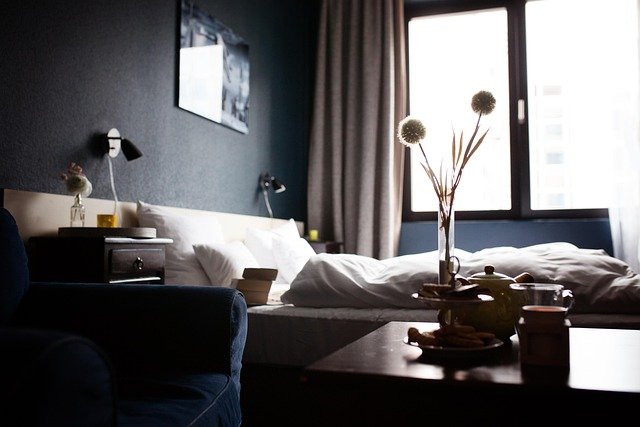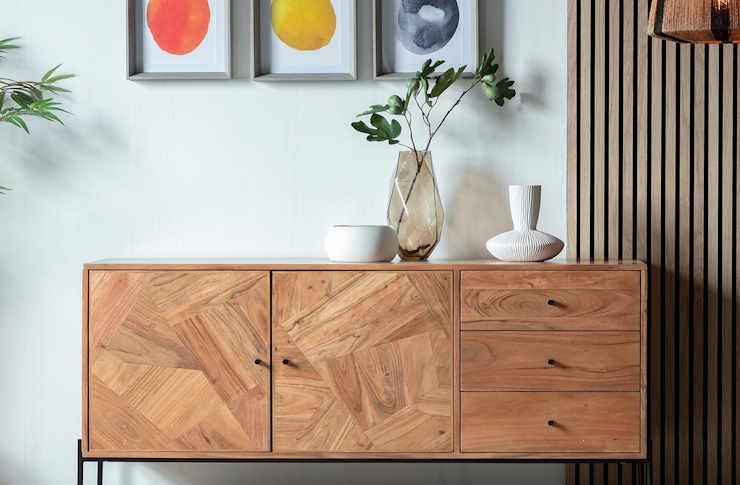Elevating Everyday Spaces: The Rise of Functional Feng Shui
Imagine walking into a room that not only looks beautiful but feels inherently right. Where every object has a purpose, and the space itself seems to breathe with positive energy. This isn't just good design – it's Functional Feng Shui, a modern twist on ancient wisdom that's captivating homeowners and designers alike. Let's explore how this innovative approach is transforming living spaces across the globe.

This modern interpretation retains the core tenets of Feng Shui – the balance of elements, the importance of flow, and the power of intention – while adapting them to suit the needs of today’s fast-paced, multifaceted lifestyles. It’s about creating spaces that not only look good and feel right but also serve our daily needs efficiently and effectively.
The Principles of Functional Feng Shui
At its heart, Functional Feng Shui is about creating harmony between aesthetics, energy flow, and practicality. It encourages homeowners to consider how they use their spaces and how those spaces can best support their activities and well-being. Key principles include:
-
Purposeful Placement: Every item should have a specific function and be positioned to maximize its usefulness while maintaining good energy flow.
-
Clutter-Free Living: Emphasizing the importance of decluttering, but with a focus on retaining items that serve a purpose or bring joy.
-
Multifunctional Spaces: Designing areas that can adapt to various needs throughout the day, supporting the fluid nature of modern life.
-
Natural Elements: Incorporating nature-inspired elements not just for aesthetics, but to enhance the functionality of spaces.
-
Technology Integration: Thoughtfully incorporating modern technology in ways that don’t disrupt the energy of the space.
Implementing Functional Feng Shui in Your Home
Adopting Functional Feng Shui doesn’t require a complete home overhaul. Start by assessing each room’s purpose and how well it serves that purpose. Here are some practical tips:
In the living room, arrange furniture to create clear pathways and conversation areas. Choose pieces that are both comfortable and functional, like ottomans with hidden storage.
For the bedroom, position the bed for optimal rest according to Feng Shui principles, but also consider practical aspects like easy access to charging stations for devices.
In the home office, arrange your desk to face the door (the command position in Feng Shui) while ensuring it’s positioned for optimal natural light and minimal screen glare.
The kitchen, often considered the heart of the home, should be organized for efficient workflow. Implement the Feng Shui principle of the commanding position for the stove while ensuring easy access to frequently used items.
The Impact on Well-being and Productivity
Proponents of Functional Feng Shui report significant improvements in their quality of life. By creating spaces that are both energetically balanced and practically efficient, individuals often experience:
-
Reduced stress and anxiety
-
Improved sleep quality
-
Enhanced productivity and focus
-
Greater overall satisfaction with their living environment
Research in environmental psychology supports many of these claims, showing that our physical surroundings can indeed have a profound impact on our mental and emotional well-being. By combining the spiritual wisdom of Feng Shui with practical, function-driven design, we create spaces that nurture both body and soul.
The Future of Home Design: Balancing Tradition and Innovation
As we look to the future of interior design, Functional Feng Shui stands out as a beacon of balance between ancient wisdom and modern needs. It offers a framework for creating homes that are not just beautiful showcases but true sanctuaries that support and enhance our daily lives.
This approach is particularly resonating with millennials and Gen Z, who are increasingly seeking holistic approaches to well-being that encompass their living spaces. As remote work becomes more prevalent, the principles of Functional Feng Shui offer valuable guidance for creating home environments that support productivity, creativity, and relaxation.
Moreover, as sustainability continues to be a growing concern, the Feng Shui emphasis on harmony with nature aligns perfectly with eco-friendly design practices. This synergy is leading to innovative, green-focused applications of Functional Feng Shui, from the use of sustainable materials to the integration of indoor gardens that serve both aesthetic and practical purposes.
Challenges and Considerations
While the benefits of Functional Feng Shui are numerous, implementing it can present challenges, especially in urban environments with space constraints. However, practitioners argue that these limitations often lead to the most creative and effective solutions.
Another consideration is the balance between personal style and Feng Shui principles. Critics might worry that adhering to these guidelines could result in sterile or impersonal spaces. However, proponents emphasize that Functional Feng Shui is about enhancing, not replacing, personal taste. The key is to find ways to express individuality within the framework of balanced, purposeful design.
Embracing Functional Feng Shui: A Path to Harmonious Living
As we navigate the complexities of modern life, our homes have never been more important as refuges and multifunctional spaces. Functional Feng Shui offers a compelling framework for creating living environments that nourish our spirits, support our daily activities, and adapt to our evolving needs.
By blending timeless wisdom with contemporary design and functionality, this approach promises to revolutionize how we think about and interact with our living spaces. As more homeowners and designers embrace these principles, we may see a shift towards more intentional, harmonious, and truly livable interiors.
Whether you’re a seasoned design enthusiast or simply looking to improve your living space, considering the principles of Functional Feng Shui could be the key to unlocking the full potential of your home. In a world that often feels chaotic and disconnected, creating a space that balances energy, functionality, and beauty can provide a much-needed anchor, supporting our well-being and helping us thrive in all aspects of life.





